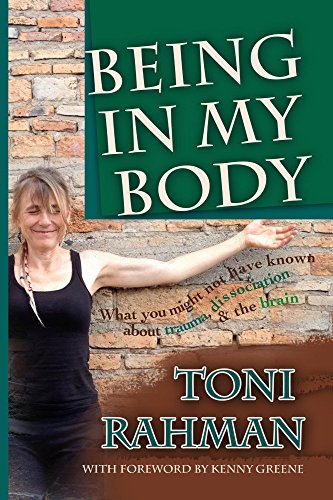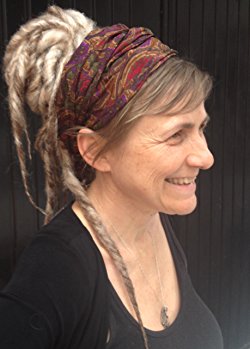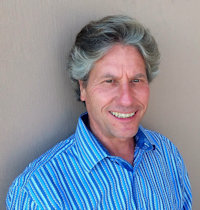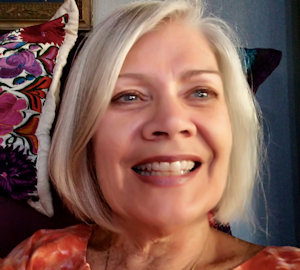Being In My Body: What You Might Not Have Known about Trauma, Dissociation and the Brain

from amazon.com
Being In My Body explores a topic that has only recently been connected with trauma at all, and is still largely circumvented by modern medicine, insurance agencies, and the pharmaceutical industry. It has to do with something the experts are now referring to as developmental trauma. Whatever we call it, it profoundly shapes our physical, interpersonal and mental health. It has the potential to disconnect us from others, hinder the development of healthy narcissism, and make safety in intimate relationships virtually unachievable until it is properly dealt with.
Whether you identify with the idea of not being able to identify or connect with your emotional self, you have had trouble maintaining deep and nourishing connections in your closest relationships, or you have a friend or loved one who has been touched by some kind of trauma, this book offers a way to integrate what you know and move you forward in the ways you relate with yourself and the people in your life.
Toni’s message is clear: Caring for and being connected with the body is a prerequisite for a compassionate, trauma-informed society and a safer, saner world.
https://www.amazon.com/Being-My-Body-Trauma-Dissociation-ebook/dp/B01N07LONC
Author: Toni Rahman

Toni now lives in Guadalajara, Mexico, where she has a small private practice. She continues to learn and grow while conceptualizing the next chapters of her life which will be characterized by satisfying and gentle rhythms, self-care, and increasingly balanced, joyous and authentic connections.
Reviewed by: John Stokdijk

Being In My Body: What You Might Not Have Known About Trauma, Dissociation & The Brain by Toni Rahman is of interest to me because of a strong connection to an important aspect of my own life. In the Overview of her book, Toni writes:
Trauma, whether it originates from an accident, the battlefield, or not having our developmental needs met during the first years of life, leaves its unique signature on our systems.
At age 6 months I had mastoiditis, an infection of the middle ear. My case was probably serious because surgery was required. The condition recurred at age 12 months and again at 18 months. Before age two years old I had had surgery three times. This was traumatic although I do not know if that trauma was mild or severe.
I have no memory of any of this. From my mother I learned that at those times I did not cry like a normal baby. I screamed because of the great pain. My father took me through the village to the doctor in the basket of his bicycle, something which I can picture vividly in my imagination. Today I have empathy and compassion for that miserable little baby. Today I contemplate the possibility of that child living inside a man who stills seeks safety and comfort.
I was raised in a family that was neither nurturing nor loving and I have very few memories of positive interactions with my parents as a child. My parents were good people typical of their generation. But their vision of childrearing was providing food, clothing, shelter and education and nothing more.
In an attempt to cope with my occasional problematic behavior over the years, my wife and I have joked to each other that I probably have brain damage. Perhaps it is no joke. The brain of a baby is far from fully developed so it seems probable that my brain may have suffered some damage during the first two years of my life.
Something happens in the brain as a result of stress… For those of us with memories that constitute unresolved trauma… we might find ourselves… flooded with emotions… For me, it’s the visceral response of feeling unsafe and trapped.
Intergenerational trauma is woven into the fabric of our modern world… something is wrong… Of course our parents did the best they could…
For Toni Rahman, her subject is also a very personal quest. She shares her own struggles with her readers, including experiencing three marriages and three divorces, and researching and writing her book seems to have been a therapeutic experience. She also adds many colorful stories from the lives of clients of her practice as a psychotherapist.
This topic is very personal to me because as I review the literature, uncovering research that speaks to me, and finding out what others have been learning, I feel curious, deeply validated and strangely affirmed.
Although Toni Rahman and I have lived very different lives, much of what she describes resonates with me as we face some similar challenges.
I have an emotional response that is way out of proportion to the immediate situation…
Sometimes when I struggle with an emotional response I get a pain in my gut. What is my body trying to tell me? Am I still affected by unresolved trauma? Why do I at times feel unsafe when there is no apparent danger? These are intriguing questions.
The body actually has plenty to say about all this trauma, dissociation and the brain, and it does, all the time, in countless ways.
Chapter 5 - Healthy Adult Intimacy - is, obviously, about adult intimacy. I admire how open Toni is about her own life and we can learn much from her experiences. Further discussion of some of the ideas in this chapter is something I will pursue privately with my wife.
Correctly understanding our personal problems is important. But more valuable is moving forward with solutions. Chapter 6 and its appendices provides readers with an excellent array of tools.
While Toni Rahman, who lives in Guadalajara, is generously open about her personal experiences, Being In My Body is also based on extensive research as detailed in the References and Notes. Again, I am impressed with the abundance and variety of books written by Lakeside residents. I am looking forward to the discussions of this book at the September meeting of the Ajijic Book Club.
Comments
8 years ago — John StokdijkThere is a great article about Toni in the current issue of The Guadalajara Reporter. And it has a lovely picture of her. Check it out here https://drive.google.com/file/d/0B7C2SA5LS5QXTnQwejI0N1lPZHM/view?usp=sharing.
Reviewed by: Paula Whittingham

As a fellow Licensed Clinical Social Worker, with 25 years of clinical practice as a therapist, I applaud Toni Rahman's recent work, "Being In My Body." I appreciated her thorough discussion of Complex Post Traumatic Stress Disorder, which delineated the differences in the types of PTSD and the various effects on individuals and families. I particularly enjoyed her information on setting Healthy Boundaries, with great detail offered in how to change self-defeating behavior in personal relationships to create more satisfying and nurturing bonds with others.
I also appreciate Toni Rahman's courageous use of self disclosure in case studies to illustrate her points on trauma and resultant Complex PTSD. She is a beacon of healing for individuals with issues who require the sensitivity and skill of a sophisticated clinican. Bravo!
Paula Whittingham, LCSW
